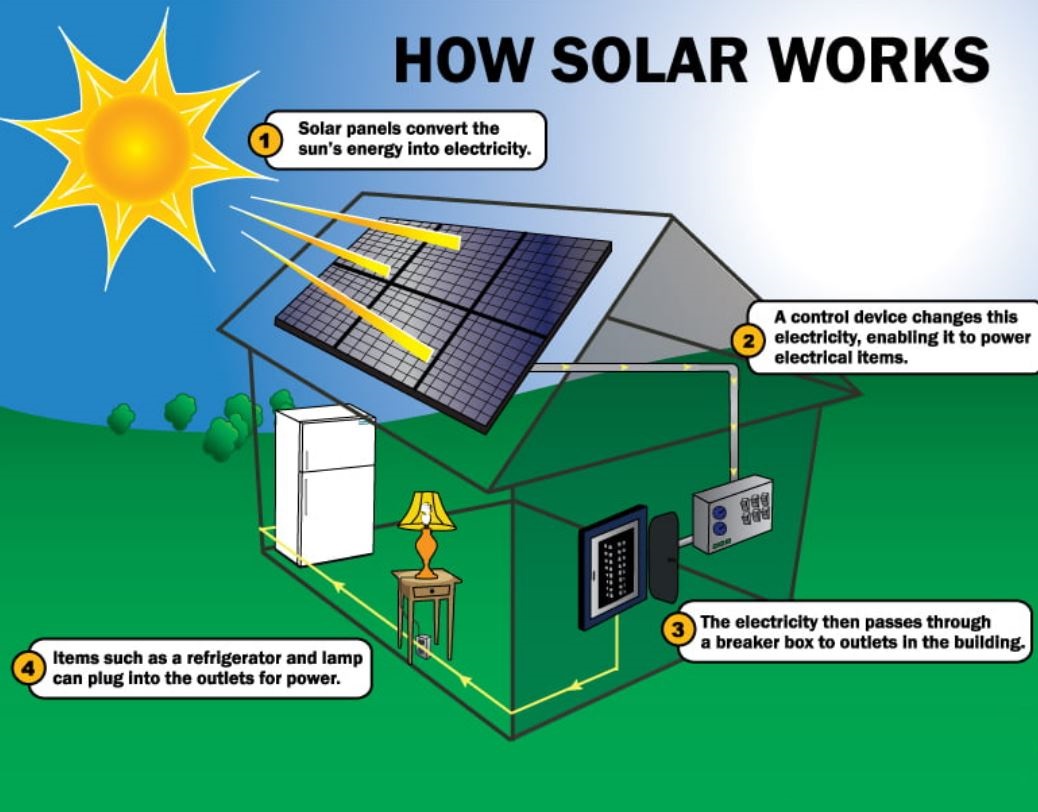Beginner’s Guide to Solar Energy Systems: Harnessing the Power of the Sun
In recent years, solar energy has emerged as one of the most promising and accessible forms of renewable energy. With the growing concern over climate change and the rising cost of traditional energy sources, more and more people are turning to solar power as a sustainable and cost-effective solution. If you’re new to the world of solar energy, this beginner’s guide will walk you through the basics of solar energy systems, how they work, and why they might be the perfect choice for your home or business.
What is Solar Energy?
Solar energy is the energy harnessed from the sun’s rays. The sun is a powerful source of energy, emitting enough sunlight in just one hour to meet the world’s energy needs for an entire year. Solar energy systems capture this sunlight and convert it into electricity or heat, providing a clean and renewable energy source.
Unlike fossil fuels, which are finite and contribute to greenhouse gas emissions, solar energy is abundant and environmentally friendly. By investing in a solar energy system, you can reduce your carbon footprint, lower your energy bills, and contribute to a more sustainable future.
How Do Solar Energy Systems Work?
At the heart of every solar energy system are solar panels, also known as photovoltaic (PV) panels. These panels are made up of solar cells, which are typically composed of silicon. When sunlight hits the solar cells, it knocks electrons loose from their atoms, generating an electric current. This process is called the photovoltaic effect.
Here’s a simplified breakdown of how a solar energy system works:
- Solar Panels Capture Sunlight: The solar panels are installed on your roof or in an open area where they can receive maximum sunlight. They absorb photons from sunlight and convert them into direct current (DC) electricity.
- Inverter Converts DC to AC: The electricity generated by the solar panels is in the form of DC, but most homes and businesses use alternating current (AC). An inverter is used to convert the DC electricity into AC electricity, making it usable for your appliances and devices.
- Electricity Powers Your Home: The converted AC electricity is sent to your electrical panel, where it is distributed throughout your home to power your lights, appliances, and other electronics.
- Excess Energy is Stored or Sent to the Grid: If your solar energy system produces more electricity than you need, the excess energy can be stored in a solar battery for later use or fed back into the grid. In many cases, you can earn credits for the excess energy you contribute to the grid through a process called net metering.
Types of Solar Energy Systems
There are several types of solar energy systems to choose from, depending on your needs and budget. Here are the most common options:
- Grid-Tied Solar Systems: These systems are connected to the local utility grid. They allow you to use solar power when the sun is shining and draw electricity from the grid when it’s not. Excess energy can be fed back into the grid for credits.
- Off-Grid Solar Systems: Off-grid systems are not connected to the utility grid and are ideal for remote locations or areas with unreliable grid access. These systems rely on solar batteries to store energy for use during nighttime or cloudy days.
- Hybrid Solar Systems: Hybrid systems combine the benefits of grid-tied and off-grid systems. They are connected to the grid but also include a solar battery for energy storage, providing backup power during outages.
- Solar Water Heating Systems: These systems use solar energy to heat water for your home or business. They are a cost-effective way to reduce your energy bills and are often used in conjunction with PV systems.
Benefits of Solar Energy Systems
Switching to solar energy offers numerous benefits, including:
- Lower Energy Bills: By generating your own electricity, you can significantly reduce or even eliminate your monthly energy bills.
- Environmental Impact: Solar energy is a clean and renewable resource that reduces your reliance on fossil fuels and lowers your carbon footprint.
- Energy Independence: With a solar energy system, you become less dependent on utility companies and more self-sufficient.
- Increased Property Value: Homes and businesses with solar energy systems often have higher property values and sell faster than those without.
- Government Incentives: Many governments offer tax credits, rebates, and other incentives to encourage the adoption of solar energy.
Is Solar Energy Right for You?
Before investing in a solar energy system, there are a few factors to consider:
- Sunlight Availability: The amount of sunlight your location receives will impact the efficiency of your solar panels. Areas with more sunlight will generate more electricity.
- Roof Condition and Space: Your roof should be in good condition and have enough space to accommodate the solar panels. Ideally, it should also face south to maximize sunlight exposure.
- Upfront Costs: While solar energy systems can save you money in the long run, they do require an initial investment. Be sure to explore financing options and government incentives to offset the cost.
- Energy Needs: Assess your energy consumption to determine the size of the system you’ll need. A professional solar installer can help you with this.
Getting Started with Solar Energy
If you’re ready to take the plunge into solar energy, here are the steps to get started:
- Research and Plan: Learn about the different types of solar energy systems and determine which one is best for your needs.
- Get Quotes: Contact multiple solar installers to get quotes and compare prices, warranties, and services.
- Choose an Installer: Select a reputable and experienced solar installer to design and install your system.
- Install and Enjoy: Once your system is installed, you can start enjoying the benefits of clean, renewable energy.
Final Thoughts
Solar energy systems are a smart and sustainable way to power your home or business. By harnessing the power of the sun, you can reduce your energy bills, lower your environmental impact, and take a step toward energy independence. While the initial investment may seem daunting, the long-term savings and benefits make solar energy a worthwhile choice for many.
Whether you’re motivated by financial savings, environmental concerns, or a desire for energy independence, solar energy offers a solution that’s both practical and empowering. So why wait? Start exploring your solar energy options today and join the growing movement toward a cleaner, greener future.
By understanding the basics of solar energy systems, you’re now equipped to make informed decisions about whether solar power is right for you. The sun is shining—let’s harness its power!







